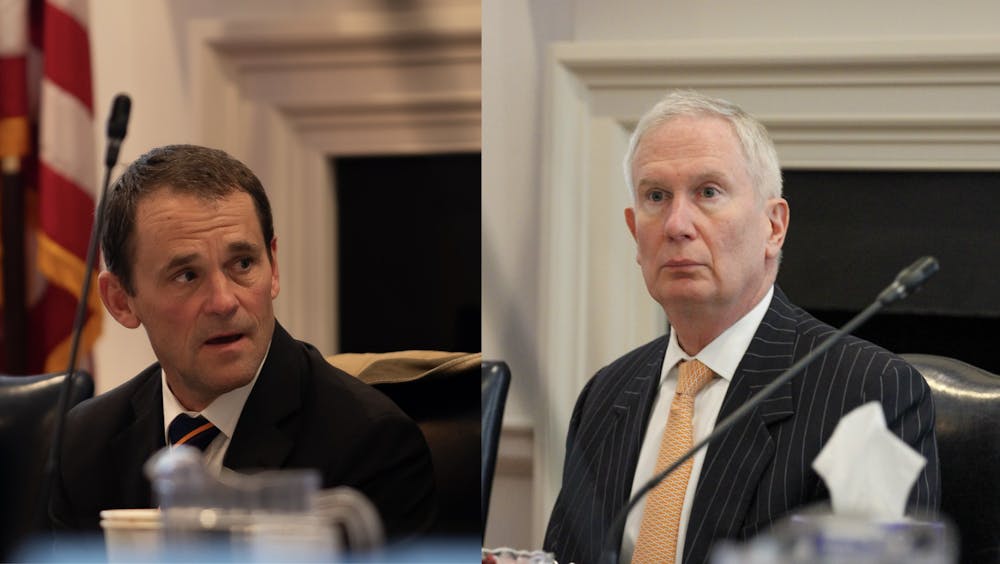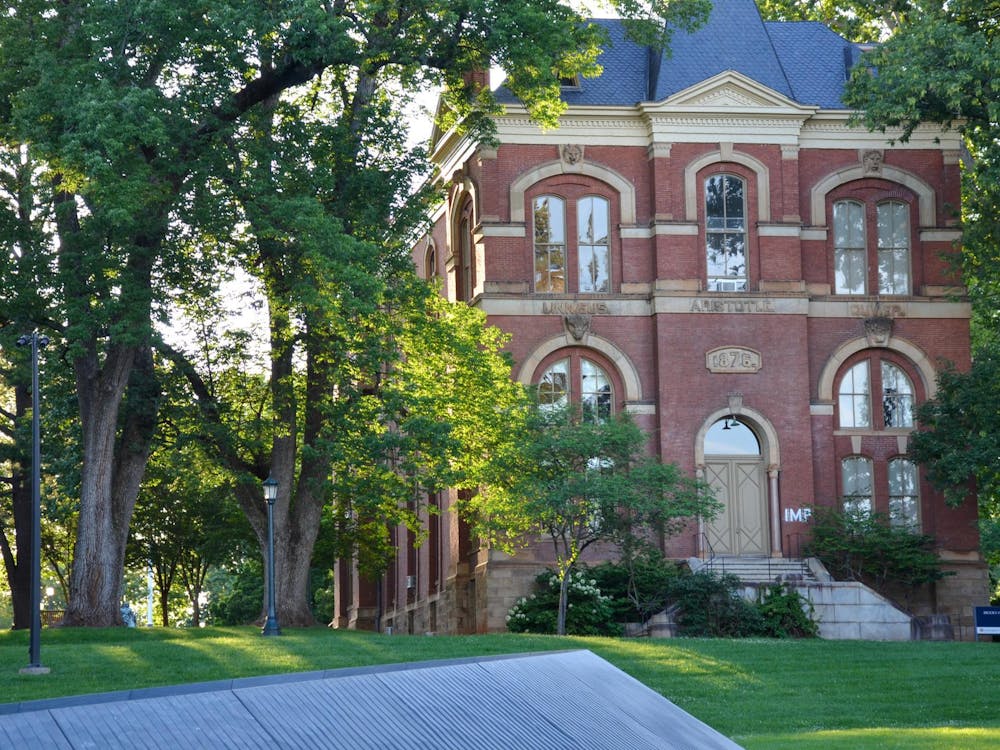Although the University ultimately chose not to sign the Trump administration’s “Compact for Academic Excellence in Higher Education,” Interim University President Paul Mahoney left open the possibility of future collaboration and alternative approaches in his letter to the Education Department. This possibility for cooperation has come despite months of heightened federal scrutiny and leadership turmoil at the University.
The Compact was sent to nine universities Oct. 1 and laid out a series of conditions — such as a five-year tuition freeze, limits on international enrollment and restrictions on race-based admissions, among other conditions — in exchange for preferential federal funding access.
According to The Wall Street Journal, May Mailman, senior advisor for special projects at the White House, said that the nine initially invited universities were selected because they could be or are “good actors.”
“They have a president who is a reformer or a board that has really indicated they are committed to a higher quality education,” Mailman said.
However, the University spent the earlier half of this year at odds with the federal government and under pressure from the Justice Department which led to former University President Jim Ryan’s resignation.
The Justice Department sent the first of seven letters to the University April 11th. It requested detailed data on admissions decisions, test scores and financial aid awards to verify compliance with the Supreme Court’s 2023 ruling in Students for Fair Admissions v. Harvard. The Justice Department said it sought to ensure that race was no longer used as a factor in the University's admissions process.
Shortly after the first of these two letters, Ryan joined more than 180 university presidents in signing a collective statement condemning what they described as growing federal intrusion into higher-education governance by the Trump administration. Although the statement called for “constructive engagement,” it sharply criticized efforts to limit diversity initiatives and warned that political pressure from Washington risked undermining institutional independence.
“As leaders of America’s colleges, universities, and scholarly societies, we speak with one voice against the unprecedented government overreach and political interference now endangering American higher education,” the statement read.
Ryan was the only president of a public university in Virginia to sign the letter. The three other Virginia signatories represented private institutions.
Despite Ryan and other universities’ objections to “federal overreach,” the Justice Department sent five more letters in which it notified Ryan and Board leadership that it was launching an investigation based on the University’s compliance with Title VI of the Civil Rights Act, which prohibits a recipient of federal financial assistance from discriminating on the basis of race, color or national origin. The letter warned that failure to cooperate would lead to suspension or termination of federal financial assistance.
The Justice Department sent two final letters ten days ahead of Ryan’s resignation, claiming that the then-president had “engaged in attempts to defy and evade federal anti-discrimination laws.” The DOJ said its patience was “wearing thin” and threatened to involve other federal agencies or terminate funding entirely if immediate corrective action was not taken.
In his message to the University announcing his resignation sent June 27, Ryan wrote that he “could not make a unilateral decision to fight the federal government in order to save [his] own job.”
Now, four months after Ryan’s resignation and nearly three months since Mahoney was appointed, the Trump administration has grouped the University in as a “good actor.” Although five investigations by the Justice Department remain open, two closed in September. These investigations were closed, the Justice Department said in a letter sent to the University’s outside legal counsel, because of the University’s cooperation and the “remedial actions” it had taken.
Mahoney said at a September Board meeting that he will continue to engage with the Justice Department to bring the remaining investigations to a close as well.
Less than one month later, the University was one of nine institutions to receive an invitation to join the Compact.
“Thank you for your tireless work to improve higher education in our country,” the invitation read. “The Administration is committed to a forward-looking vision of higher education that serves our nation by helping the next generation grow into resilient, curious, and moral leaders, inspired by American and Western values.”
Although Mahoney chose not to join, reasoning in his response to the administration that research funding awards should be granted on the basis of merit, he welcomed the possibility of future collaboration — although what that collaboration might look like remains unclear.
“Higher education faces significant challenges and has not always lived up to its highest ideals,” Mahoney wrote. “We believe that the best path toward real and durable progress lies in an open and collaborative conversation. We look forward to working together to develop alternative, lasting approaches to improving higher education.”







